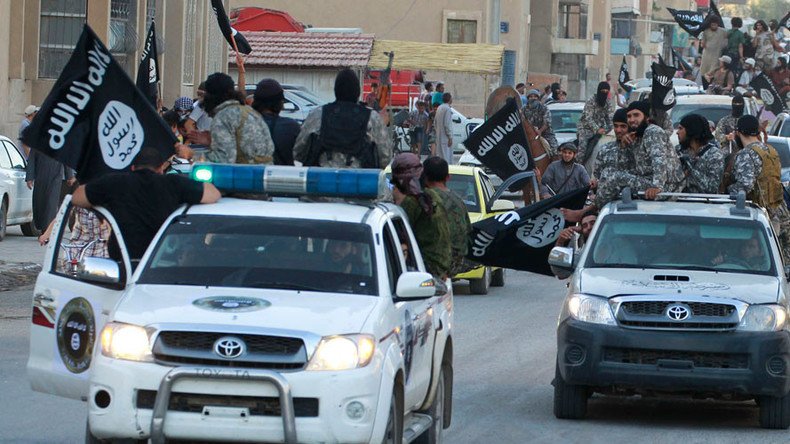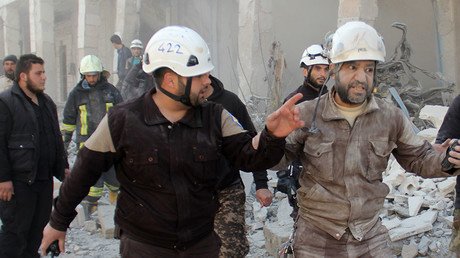British govt admits to secret Syria war fund but refuses to identify ‘non-extremist’ fighters

Responding to questions from the Defence Committee, the government refused to identify the forces it is training in Iraq and Syria but appeared to confirm it has increased the amount of cash available for the conflict from a secretive war fund.
The committee asked a number of questions about the supposed 70,000 moderate fighters available to fight Islamic State (IS, formerly ISIS/ISIL), cited by then Prime Minister David Cameron to make the case for British intervention in Syria in December 2015.
The committee said it had been forced to examine the claim with the help of outside sources because the government had previously refused to name the groups.Critics say the figure was either made up or consisted of groups similar to IS and Al-Qaeda.
“It would not be appropriate for the government to release or confirm such information on individual groups in Syria,” the official response said.
The government insisted “there are significant numbers of non-extremist fighters in Syria opposing both the Assad regime and terrorist groups like Daesh [IS].”
It disclosed that infantry and tactical training is being provided to some groups in the region and that money had been pooled from the controversial and highly secretive Conflict, Stability and Security Fund (CSSF) to pursue UK aims in the region.
“We have increased pooled funding ... and set up joint units to provide an integrated approach to tackle international security issues, such as terrorism and counterproliferation,” the government response stated.
As recently as Monday politicians on the Joint Committee on National Security Strategy complained about the fund’s lack of transparency.
At a committee session, former Tory defense chief Lord Hamilton told Home Secretary Amber Rudd he had become aware the committee is “responsible to Parliament for the CSS fund,” but that MPs were not being told which nations would get handouts of cash.
“We said we would be mildly interested in knowing in which countries this money is spent,” he said.
Rudd said the fund is used for 97 different initiatives in 40 countries but declined to explain further, on the basis that the truth could be embarrassing and make other countries jealous.













